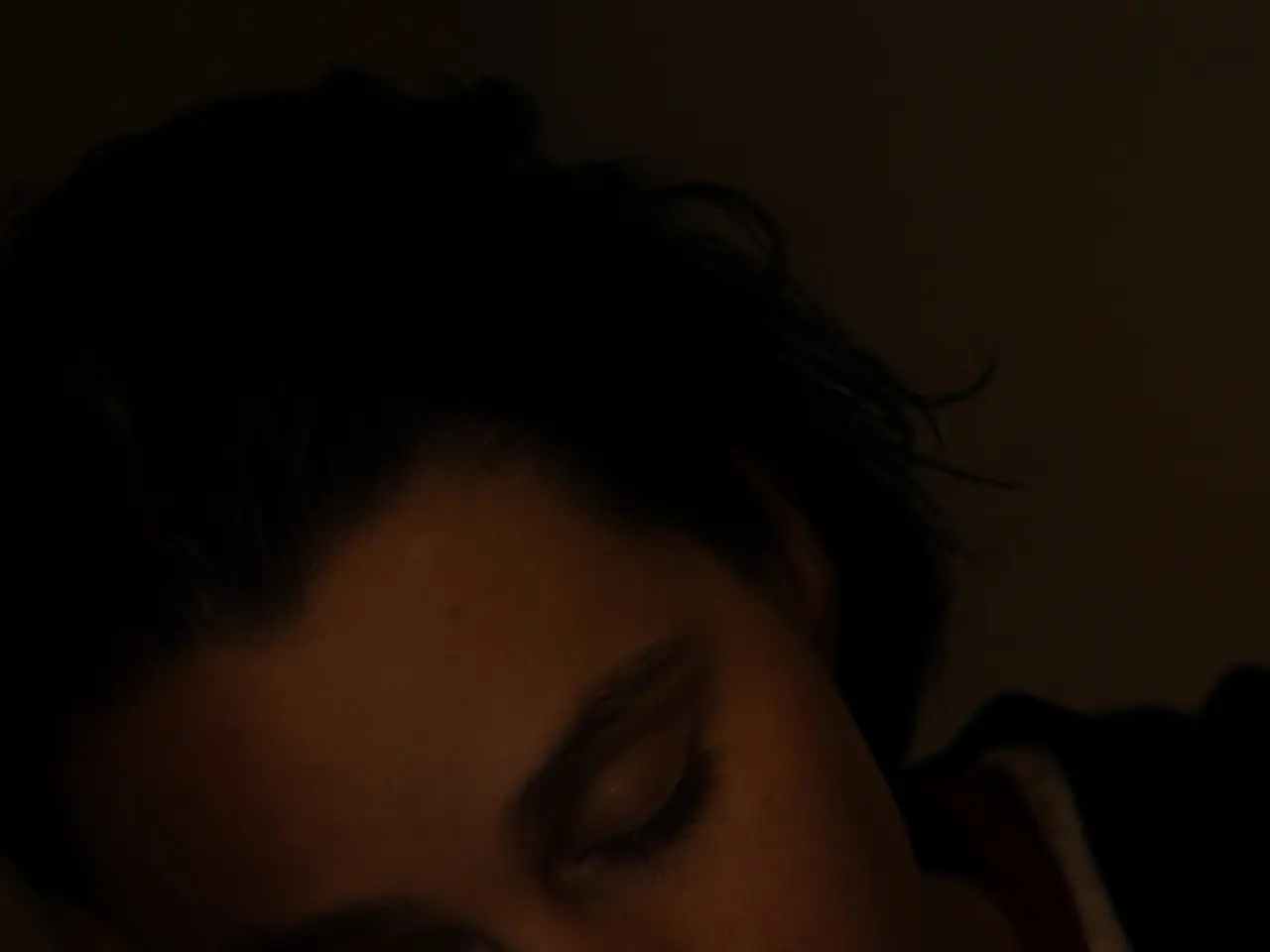Sleep disorders in autism: Connection, remedies, and additional insights
=====================================================================
A growing body of research suggests a link between autism and sleep disturbances, with worsening primary symptoms of autism often aggravating sleep problems and vice versa [1]. This article explores strategies and treatments that can help improve sleep for both autistic adults and children.
Sleep hygiene practices play a crucial role in promoting better sleep. These include optimizing the sleep environment, maintaining a consistent sleep routine and schedule, following a calming and structured bedtime routine, managing nighttime hunger, and keeping a sleep diary [2].
The ABCs of sleeping, a mnemonic used to help remember recommendations for children with insomnia, stands for age-appropriate bedtimes and wake times with consistency, schedules and routines, location, exercise and diet, no electronics in the bedroom or before bed, positivity, independence when falling asleep, and needs of the child met during the day [3]. Parents can help their children establish positive patterns by providing reminders, creating a visual bedtime schedule, and maintaining consistency for the whole family.
Nonpharmacological therapy is the preferred first-line treatment for insomnia in autistic people, including sleep education and behavior interventions, relaxation techniques, and cognitive behavioral therapy [4]. Other interventions that may help with sleep include weighted blankets and vests, sound-to-sleep mattresses, massage, aromatherapy, yoga, sports and exercise, and various other therapies.
Over-the-counter medications used to improve sleep in autistic individuals may include antihistamines, melatonin, tryptophan, carnosine, iron supplements, multivitamin and mineral supplements, valerian, German chamomile, and other herbal remedies [2]. Prescription medications that can aid with sleep include melatonin, antipsychotics such as olanzapine, antidepressants such as trazodone, alpha-adrenergic agonists such as clonidine, sedatives and hypnotics such as clonazepam, Alzheimer's disease medication such as donepezil, and other prescription medications [5].
Common causes of insomnia in individuals with autism include genetic factors affecting circadian rhythms, sensory sensitivities, co-occurring conditions such as anxiety, ADHD, gastrointestinal problems, and difficulty self-regulating emotions [1]. Autistic individuals often have disruptions in the circadian clock and spend less time in restorative REM sleep, leading to problems falling asleep and staying asleep [1]. Sensory sensitivities to light, sound, or touch, as well as anxiety and gastrointestinal discomforts like constipation, contribute significantly to sleep difficulties [1][3].
Insomnia in autism also correlates with more severe behavioral issues, such as repetitive behaviors, attention difficulties, depression, and social impairment. Sleep deprivation can exacerbate these daytime challenges, including lower IQ scores and social interaction difficulties [2][3].
Healthcare professionals can help identify the cause of sleep problems and prescribe the best treatment. Consulting healthcare providers for individualized approaches including behavioral interventions, sleep hygiene, and where appropriate, medical treatments is essential given the complexity and variability of sleep issues in autism [3][4].
It is important to note that around 50-80% of children with ASD have disturbed sleep, compared to 11-37% in neurotypical children, and sleep problems usually continue into adulthood [6]. Autistic people commonly experience delayed sleep onset, an inability to maintain sleep, early awakenings, and subsequent daytime sleepiness [6].
In conclusion, a consistent and predictable bedtime routine, avoiding stimulating activities close to bedtime, using visual supports, making small, gradual adjustments to sleep habits, optimizing the sleep environment, identifying and minimizing bedtime triggers, being flexible and patient, addressing co-occurring conditions, and consulting healthcare providers for individualized approaches are all strategies that can help improve sleep in autistic individuals.
- Sleep disturbances in individuals with autism often worsen primary symptoms, indicating a link between autism and sleep issues.
- Nonpharmacological therapies, such as sleep education, behavior interventions, and relaxation techniques, are preferred for treating insomnia in autistic individuals.
- Over-the-counter medications like antihistamines, melatonin, and other herbal remedies can help improve sleep for autistic individuals, but prescription medications may also be necessary.
- Common causes of insomnia in individuals with autism include disruptions in circadian rhythms, sensory sensitivities, and co-occurring conditions like anxiety and gastrointestinal problems.
- Consulting healthcare providers for individualized approaches, including behavioral interventions, sleep hygiene, and medical treatments, is essential for managing sleep issues in autism.
- It is important to note that a significant percentage of children with autism have disturbed sleep, and these sleep problems often persist into adulthood, affecting mental health, health-and-wellness, and potentially exacerbating autism-related symptoms.




